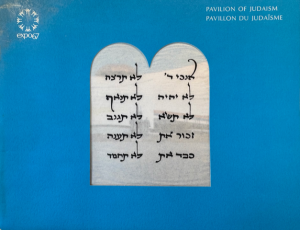 MONTREAL — For nearly 50 years, from 8:30 in the morning until 1 in the afternoon on virtually every Sunday from spring to fall, in good weather and bad, Arthur Schwartz has sat at a little table inside a gate or near the office at Baron de Hirsch cemetery on Rue de la Savane, asking for and collecting money.
MONTREAL — For nearly 50 years, from 8:30 in the morning until 1 in the afternoon on virtually every Sunday from spring to fall, in good weather and bad, Arthur Schwartz has sat at a little table inside a gate or near the office at Baron de Hirsch cemetery on Rue de la Savane, asking for and collecting money.
Arthur Schwartz
Not for himself, needless to say.
A retired needle-trade cutter – an art that has gone the way of the dodo in the era of computer and laser technology – the money has always been earmarked for a fund for the welfare of soldiers in Israel.
For the last 16 years, Schwartz, 87, has been a widower. His wife of 37 years, Estelle, who was 11 years his junior, died of cancer in 1994. Since then, Schwartz has lived completely on his own in the Ahunsic area of town in a triplex he owns and is the landlord of. He keeps his dwelling spotless, lives next to and is friendly with neighbours who are Muslims and Christians, and acts, sounds and looks many years younger than his age.
Schwartz’s businessman son, Eugene, lives in Montreal and is married to Sima Goel, a well-known chiropractor who fled Iran in 1982 with her sister. His daughter, Gloria, lives in Ottawa with her husband, a pathologist.
Schwartz has no idea of how much he has collected over the decades. But it’s all marked down in his notebook, as he showed a recent visitor, written with the same precision as the lines he made with his sharp scissors at the wide factory table he once worked at.
“The largest amount I ever got from one person at one time was $100,” said Schwartz, whose diligence at the cemetery has been duly recognized over the years with plaques that dot his wall.
“The biggest days are Mother’s Day and just before Rosh Hashanah. But it’s not the amount that’s important.”
Collecting money for Israeli soldiers began as an offshoot of his involvement with the cemetery’s Israel Sick Benefit Association, an organization he was encouraged to join by his late father-in-law, who was its secretary. By joining, Schwartz became an extra vote with his wife’s father when it came to decision-making.
“Members also got two free plots,” Schwartz said, laughing.
He said collecting money for Israeli soldiers has given him “something to do” on a Sunday. At the cemetery, he exchanges banter with friends and gives friendly greetings to passers-by. He is also the treasurer for Beth Ora Seniors and has worked as a tour guide at the Montreal Holocaust Memorial Centre.
When Schwartz started collecting money, he said, there was enough business for four tables and others to help. For two decades, he worked with a man who has since become incapacitated by Alzeheimer’s disease. Now he shares modest headquarters with Hershey Klein, while others are also there to solicit money for other worthy causes, such as Jewish war veterans.
Despite one leg that has been ailing him lately and has lessened his mobility slightly, Schwartz has continued to man his table, but not only because it’s something to do.
He has also been doing it as a continuing gesture of appreciation for what Montreal’s Jewish community has done for him since even before he arrived here in 1948.
It was Canadian Jewish Congress, he recalled, that paid for his voyage as a “war orphan” from Czechoslovakia.
Born in Kosice, Czechoslovakia, in 1923, Schwartz survived the war working in a Hungarian labour camp run by the German army. Two sisters (now deceased) also survived the war, but his father died in Germany soon after his mother and brother died in the flames of Auschwitz.
Schwartz was luckier in the sense that he was never in a concentration camp, but the Holocaust still left its indelible mark. He spent months recuperating from frostbitten feet after his liberation from the labour camp on Jan. 1, 1945. He then spent months begging for food and dealing in contraband cigarettes before returning to Czechoslovakia, reuniting with his sisters, working as a weaver, and serving two months in the Czech army because of mandatory conscription laws.
Schwartz made it to Canada under the auspices of CJC, one of 1,100 orphans brought in after the “one is too many” days of former prime minister Mackenzie King.
“They found me a room, a job and gave me small amounts of money to get by.”
Schwartz then began to work in the “shmatte business,” and the rest was history.






